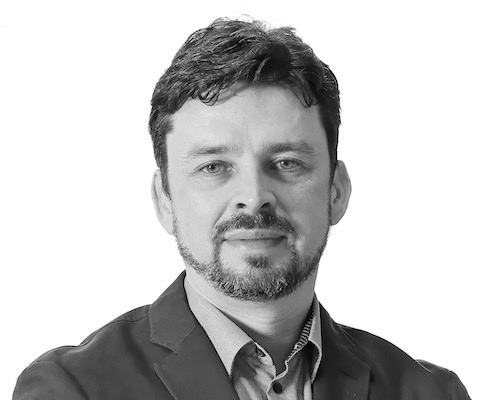
Prof. Brian McCabe PhD - Chairperson Scientific Advisory Board and co-founder
Brian is a Professor and the Director of the Brain Mind Institute at EPFL.
His research focus is motor neuroscience with the twin goals to understand the fundamental molecular cellular mechanisms necessary for motor circuit and synapse function and to determine how human disease disrupts these processes. His studies have given new insight into the pathophysiology of motor system diseases and revealed novel therapeutic targets.
He specialised in genetics as an undergraduate at Trinity College Dublin Ireland, received his PhD from Cambridge University England and was a postdoctoral researcher at the University of California at Berkeley USA. He was a faculty member at Columbia University Medical School in New York USA prior to moving his laboratory to EPFL.
Brian is a Professor and the Director of the Brain Mind Institute at EPFL.
His research focus is motor neuroscience with the twin goals to understand the fundamental molecular cellular mechanisms necessary for motor circuit and synapse function and to determine how human disease disrupts these processes. His studies have given new insight into the pathophysiology of motor system diseases and revealed novel therapeutic targets.
He specialised in genetics as an undergraduate at Trinity College Dublin Ireland, received his PhD from Cambridge University England and was a postdoctoral researcher at the University of California at Berkeley USA. He was a faculty member at Columbia University Medical School in New York USA prior to moving his laboratory to EPFL.
Dr. Kamel Besseghir MD
Kamel is MD by training, and has 25+ years of experience in drug development. After an academic career at the Lausanne School of Medicine and the Universities of Buffalo and Syracuse (NY, USA), he spent 3 years as Project Leader for Swiss Cooperation programs in the field of rational use of drugs in developing countries.
He entered the pharmaceutical industry first as International Director of Pharmacovigilance at Serono (Geneva), before joining Debiopharm (Lausanne), first as Medical Director, then VP Research & Evaluation, and finally as CEO.
Kamel is MD by training, and has 25+ years of experience in drug development. After an academic career at the Lausanne School of Medicine and the Universities of Buffalo and Syracuse (NY, USA), he spent 3 years as Project Leader for Swiss Cooperation programs in the field of rational use of drugs in developing countries.
He entered the pharmaceutical industry first as International Director of Pharmacovigilance at Serono (Geneva), before joining Debiopharm (Lausanne), first as Medical Director, then VP Research & Evaluation, and finally as CEO.
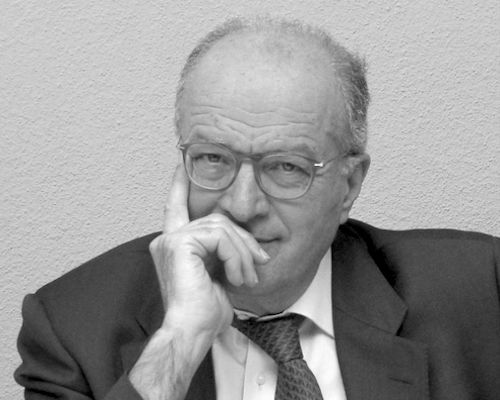
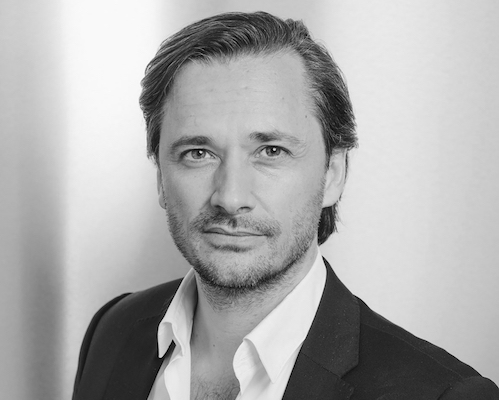
Prof. Gregoire Courtine PhD
Gregoire was trained in Physics and Neurosciences. His passion for translational neurosciences has fueled his research in the development of neurotechnologies to improve recovery from neurological disorders. After obtaining the Chancellor Award during his post-doc at the University of California Los Angeles (UCLA), he established his own laboratory at the University of Zurich in 2008 before joining the Swiss Federal Institute of Technology Lausanne (EPFL) in 2012.
He is now Full Professor of Neuroscience and Neurotechnology in the Center for Neuroprosthetics at EPFL and in the department of Neurosurgery at the University Hospital Lausanne (CHUV) where he is director of the Defitech Center for Interventional Neurotherapies (NeuroRestore). He is also Chief Scientific Officer (CSO) of GTX medical, a start-up he founded in 2014 to translate the neurotechnologies developed in his laboratory into clinical treatments.
Gregoire was trained in Physics and Neurosciences. His passion for translational neurosciences has fueled his research in the development of neurotechnologies to improve recovery from neurological disorders. After obtaining the Chancellor Award during his post-doc at the University of California Los Angeles (UCLA), he established his own laboratory at the University of Zurich in 2008 before joining the Swiss Federal Institute of Technology Lausanne (EPFL) in 2012.
He is now Full Professor of Neuroscience and Neurotechnology in the Center for Neuroprosthetics at EPFL and in the department of Neurosurgery at the University Hospital Lausanne (CHUV) where he is director of the Defitech Center for Interventional Neurotherapies (NeuroRestore). He is also Chief Scientific Officer (CSO) of GTX medical, a start-up he founded in 2014 to translate the neurotechnologies developed in his laboratory into clinical treatments.
Prof. Jocelyne Bloch MD
Jocelyne is specialized in stereotactic and functional neurosurgery, and acquired an extensive experience in deep brain stimulation (DBS) and neuromodulation for movement disorders, pain and epilepsy. She is in charge of the functional neurosurgical unit at the CHUV. Very active in experimental medicine and translational neuroscience, she nourishes a profound interest in the development of new indications for DBS, and in advancing technologies and therapeutic paradigms in neuromodulation, neuroregeneration, and cell therapy. She seeks to gather all these novel therapeutic strategies under a common umbrella that will foster optimization of treatment options for patients suffering from neurological impairments.
Since 2019, she is director of the Defitech Center for Interventional Neurotherapies (NeuroRestore). NeuroRestore is a research, innovation and treatment center that develops and applies bioengineering strategies involving neurosurgical interventions to restore neurological functions.
Jocelyne is specialized in stereotactic and functional neurosurgery, and acquired an extensive experience in deep brain stimulation (DBS) and neuromodulation for movement disorders, pain and epilepsy. She is in charge of the functional neurosurgical unit at the CHUV. Very active in experimental medicine and translational neuroscience, she nourishes a profound interest in the development of new indications for DBS, and in advancing technologies and therapeutic paradigms in neuromodulation, neuroregeneration, and cell therapy. She seeks to gather all these novel therapeutic strategies under a common umbrella that will foster optimization of treatment options for patients suffering from neurological impairments.
Since 2019, she is director of the Defitech Center for Interventional Neurotherapies (NeuroRestore). NeuroRestore is a research, innovation and treatment center that develops and applies bioengineering strategies involving neurosurgical interventions to restore neurological functions.
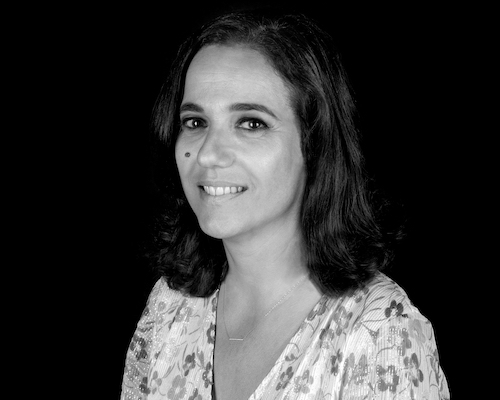
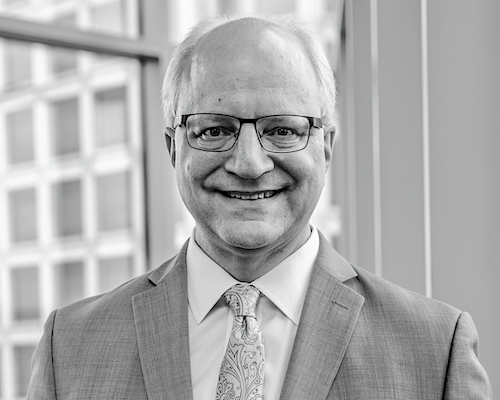
Prof. William Dauer MD
William (Bill) is Professor of Neurology & Neuroscience and the inaugural Director of the Peter O’Donnell Jr. Brain Institute at the University of Texas Southwestern Medical Center in Dallas, Texas. His academic career includes a medical degree from Washington University School of Medicine in St. Louis followed by internship and fellowships at Beth Israel Hospital in Boston and Columbia University in New York. He is a leader in the study of Parkinson’s disease and dystonia. For almost two decades, the team he leads has performed groundbreaking research focused on the molecular basis of dystonia and the mechanisms of neurodegeneration in Parkinson’s disease.
Bill is an elected member of the American Society for Clinical Investigation, and his work has been recognized with the Dystonia Medical Research Foundation’s Fahn Award, the Michael J. Fox Foundation Bachmann-Strauss Prize for Excellence in Dystonia Research, and the Harold and Golden Lamport Award for excellence in clinical science research from Columbia University
William (Bill) is Professor of Neurology & Neuroscience and the inaugural Director of the Peter O’Donnell Jr. Brain Institute at the University of Texas Southwestern Medical Center in Dallas, Texas. His academic career includes a medical degree from Washington University School of Medicine in St. Louis followed by internship and fellowships at Beth Israel Hospital in Boston and Columbia University in New York. He is a leader in the study of Parkinson’s disease and dystonia. For almost two decades, the team he leads has performed groundbreaking research focused on the molecular basis of dystonia and the mechanisms of neurodegeneration in Parkinson’s disease.
Bill is an elected member of the American Society for Clinical Investigation, and his work has been recognized with the Dystonia Medical Research Foundation’s Fahn Award, the Michael J. Fox Foundation Bachmann-Strauss Prize for Excellence in Dystonia Research, and the Harold and Golden Lamport Award for excellence in clinical science research from Columbia University
Prof. Markus Weber MD
Markus is Professor of Neurology at the University of Basel and serves as chief of the Neuromuscular Diseases Unit/ ALS Clinic at the Kantonsspital St.Gallen in Switzerland. He received his medical degree from the University of Bonn in Germany and Diploma in Clinical Neurology from the University of London, Queen Square. Following completion of his residency at various academic hospitals in Germany and clinical fellowship in neuromuscular disorders at University of British Columbia in Vancouver, Canada, he founded the Neuromuscular Diseases Center/ALS Clinic in St.Gallen Switzerland.
His work was crucial in developing a motor unit estimation technique called MUNIX as a biomarker for ALS trials. He has published well over 100 peer-review publications and book chapters. He is a member of the ENCALS executive committee and co-chair of the European Academy of Neurology scientific panel on ALS and FTD.
Markus is Professor of Neurology at the University of Basel and serves as chief of the Neuromuscular Diseases Unit/ ALS Clinic at the Kantonsspital St.Gallen in Switzerland. He received his medical degree from the University of Bonn in Germany and Diploma in Clinical Neurology from the University of London, Queen Square. Following completion of his residency at various academic hospitals in Germany and clinical fellowship in neuromuscular disorders at University of British Columbia in Vancouver, Canada, he founded the Neuromuscular Diseases Center/ALS Clinic in St.Gallen Switzerland.
His work was crucial in developing a motor unit estimation technique called MUNIX as a biomarker for ALS trials. He has published well over 100 peer-review publications and book chapters. He is a member of the ENCALS executive committee and co-chair of the European Academy of Neurology scientific panel on ALS and FTD.
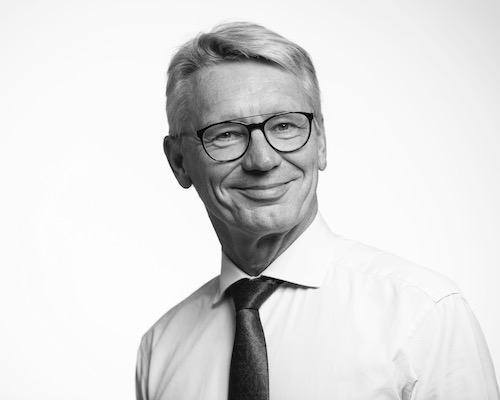
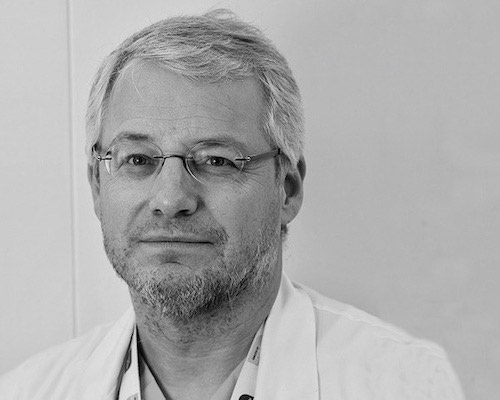
Prof. Peter Andersen MD
Peter is a Professor of Neurology at the University of Umeå and senior staff neurologist at the University Hospital of Umeå, Sweden. He received his medical degree from the University of Copenhagen, Denmark and did his residency 1992-1997 in clinical neurology at the university hospital in Umeå. Parallel with his residency, he established the first specialized clinical unit for ALS patients in northern Sweden and did his doctoral thesis on the clinical genetics of ALS with focus on SOD1-mediated ALS. He defended his thesis in 1997 and spent a year 1998-1999 as a post-doc medical research fellow at Harvard Medical School and Massachusetts General Hospital. In 2010, he was promoted to professor of neurology. During 2010-2018 he was a visiting professor at Ulm University, Germany studying the genetics of ALS in Germany. In 2015, he was promoted to KAW Clinical Scholar for 5 years. This was recently extended for another five years to 2026.
His work focus on the clinical and molecular genetics of ALS with emphasizes on clinical aspects, in particular pleiotropism and how mutant SOD1 causes neurodegeneration. He has authored over 250 peer-reviewed scientific papers including more than a dozen with “first” ground-breaking results. He is a member of the ENCALS executive committee and the European Academy of Neurology scientific panel on ALS and FTD.
Peter is a Professor of Neurology at the University of Umeå and senior staff neurologist at the University Hospital of Umeå, Sweden. He received his medical degree from the University of Copenhagen, Denmark and did his residency 1992-1997 in clinical neurology at the university hospital in Umeå. Parallel with his residency, he established the first specialized clinical unit for ALS patients in northern Sweden and did his doctoral thesis on the clinical genetics of ALS with focus on SOD1-mediated ALS. He defended his thesis in 1997 and spent a year 1998-1999 as a post-doc medical research fellow at Harvard Medical School and Massachusetts General Hospital. In 2010, he was promoted to professor of neurology. During 2010-2018 he was a visiting professor at Ulm University, Germany studying the genetics of ALS in Germany. In 2015, he was promoted to KAW Clinical Scholar for 5 years. This was recently extended for another five years to 2026.
His work focus on the clinical and molecular genetics of ALS with emphasizes on clinical aspects, in particular pleiotropism and how mutant SOD1 causes neurodegeneration. He has authored over 250 peer-reviewed scientific papers including more than a dozen with “first” ground-breaking results. He is a member of the ENCALS executive committee and the European Academy of Neurology scientific panel on ALS and FTD.
